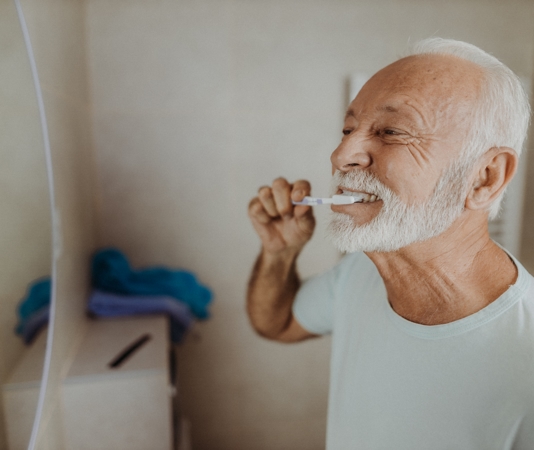Coming home from the hospital after surgery should feel like a relief. Instead, many people face new worries about managing daily tasks, staying safe, and healing properly. You're not alone if this transition feels overwhelming.
The first weeks at home are crucial for recovery success. With the right support, this vulnerable time becomes an opportunity to heal in comfort and maintain independence.
Understanding Emotional Challenges During Recovery
Is Depression Normal After Surgery?
Post-surgery emotions often catch families by surprise. Feeling sad, anxious, or frustrated during recovery is completely normal. Emotional ups and downs happen due to physical discomfort, disrupted routines, and temporary dependence on others. Homewatch CareGivers® After-Hospital Care is one way to help regain independence and normalcy faster.
Recovery affects everyone differently. Some people bounce back quickly, while others need more time to adjust. Pay attention to persistent sadness, loss of interest in activities, or excessive worry. These feelings may signal depression and a need for additional support.
Managing the Emotional Side of Healing at Home
Familiar surroundings provide comfort, but they can also highlight what's temporarily different about daily life. A few small actions can help:
Maintain connections with family and friends to combat isolation. Even brief visits or phone calls make a significant difference in mood and motivation.
Create small, achievable daily goals to build confidence. This might mean getting dressed independently, taking a short walk, or enjoying a favorite meal. Celebrating these victories, no matter how small, supports emotional healing.
Common Daily Living Challenges During Recovery
Insomnia After Surgery at Home
Sleep problems are one of the most frustrating aspects of surgery recovery at home. Discomfort, medication schedules, and anxiety about recovery can all disrupt normal sleep patterns.
Simple environmental changes often help. Keep the bedroom cool, dark, and quiet. Establish a calming bedtime routine that signals it's time to rest – for example, stop looking at screens and start reading a book an hour before bedtime. If sleep problems persist for more than a week or worsen, contact your healthcare provider.
Personal Care and Hygiene
Tasks that once felt automatic may now require extra effort or help. Limited mobility or low energy can make it difficult or impossible to bathe, dress, and groom independently.
Professional caregivers understand how to provide personal care while preserving dignity. They give just enough help to ensure safety and comfort, while carefully avoiding compromising independence.
Safety and Mobility Concerns
Post-surgery healing often involves temporary weakness or balance issues. Simple household tasks like cooking, cleaning, or reaching for items may pose unexpected risks.
Have someone nearby who can assist with walking and transfers, providing confidence to move around the home safely. Keep easy food options on hand, and ask for help with cooking as needed. Consider finding housekeeping services to keep living spaces safe and organized.
Are there any specific exercises recommended for post-surgery recovery? Sometimes. If exercises are recommended, your healthcare provider will let you know what to do. Even if you are stuck on bed rest, your doctor may recommend gentle movement to stimulate blood flow.
Nutrition and Meal Support
Appetite changes are common during surgery recovery. Some medications affect taste, while others cause nausea. Preparing nutritious meals may not be possible when energy is limited.
Support the healing process by getting assistance with grocery shopping, meal preparation, and encouragement to eat well. Professional caregivers can adapt meal plans to changing appetites and dietary needs.
Consider how nutrition directly affects recovery, and always follow the plan from your doctor:
- Does alcohol affect recovery from surgery? Yes, absolutely. Avoid alcoholic beverages entirely during recovery, as alcohol can interfere with wound healing and increase the risk of infections.
- Does smoking affect recovery after surgery? Yes, according to WHO, "Smoking greatly increases risk of complications after surgery." Just don't do it!
- Does vitamin C help with surgery recovery? It's generally a good idea to get plenty of vitamin C after surgery, as this helps your body produce collagen and reduce inflammation. Your healthcare team will advise whether you should simply eat foods rich in vitamin C or add a supplement.
- Does fasting help with surgery recovery? Despite trending videos you may have seen, post-operative fasting is rarely recommended, as it can impede healing. Instead, it’s usually best to eat nutritious meals soon after your surgery.
Essential Surgery Recovery Tips for Families
Build Emotional Stability and Connection
Isolation slows both physical and emotional healing. Support a loved one's overall well-being through transportation assistance for medical appointments, social visits, and help with getting out of the house.
Open communication about fears and concerns helps everyone process the emotional aspects of recovery. Sometimes talking to someone outside the immediate family, such as a professional caregiver, provides a different perspective and reduces stress on relationships.
Wondering what to say to someone in recovery from surgery? These are some of the best things you can express in your own words:
- I'll be thinking of you often and visiting on [day of week].
- I'm hoping for your speedy recovery.
- I'd like to help with [blank] around the house for the next few weeks.
- This is hard. I'm sorry you’re feeling down. Tomorrow will be better.
Support Gradual Independence
Adjust support levels as strength and confidence return. The goal is to restore as much independence as possible. The recovering person's daily energy levels should guide care, preventing overexertion on tough days and enabling progress on stronger days.
Embrace the Role of Home Care in Post-Surgery Recovery
Professional caregivers bring specialized training and equipment to post-surgery healing support. They understand the physical and emotional challenges of recovery and know how to provide appropriate assistance.
More importantly, they offer consistent, compassionate companionship during a vulnerable time. This professional presence provides:
- Peace of mind for both clients and their families
- Pressure relief for family and friends who are providing care
- A caregiving approach that adapts based on individual needs, preferences, and progress
From offering flexible scheduling to learning exactly what helps someone relax, caregiving professionals accommodate the unpredictable and personal nature of healing. Even occasional respite care allows families to focus on love and encouragement rather than the stress of daily care tasks.
The Homewatch CareGivers Difference
Our experienced caregivers understand the delicate balance of providing support while maintaining client dignity and independence. Each caregiver is background-checked and trained in targeted care, including post-hospital and surgery care. We adapt our in-home surgery recovery services to each person and each stage of healing at home.
Contact your local Homewatch CareGivers today to discuss how we can support better at-home healing. Your local team can help coordinate additional services when needed and offer technology to keep loved ones connected and informed about daily progress.
Call (888) 404-5191 or contact us online to get started.


.jpg)

.1803151925550.jpg)
